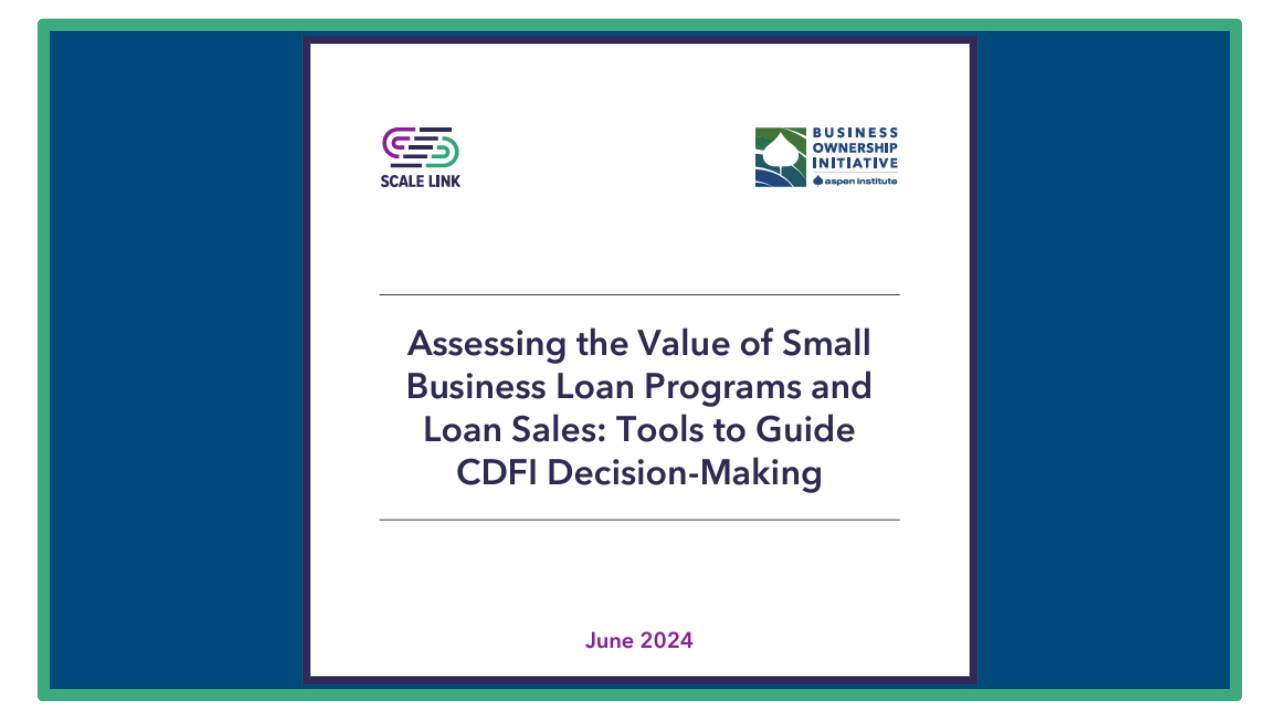Assessing the Value of Small Business Loan Programs and Loan Sales: Tools to Guide CDFI Decision-Making


Download Financial Model (Excel)
Community development financial institutions (CDFIs) have historically relied entirely on their own balance sheets to fund small business loans. But as CDFIs have been asked to step up to help solve significant national challenges — the pandemic, racial inequities, and climate change — funders and policymakers have introduced new programs and approaches aimed at encouraging CDFIs to increase their lending. These measures enabled CDFIs to grow, helped them deal with their own liquidity and risk constraints, and, in some cases, increased revenue and margins on these difficult-to-originate loans.
Participation in these new capital tools has both mission and financial implications for CDFIs, and decisions about whether and how to engage are complex to navigate. To assist CDFIs in making these choices, Scale Link and the Business Ownership Initiative have created this decision guide and financial modeling tool. The decision guide focuses on the four basic factors to be considered in assessing a program’s strategic and financial impact, helping the reader to assess the pros and cons of a program and pointing them to the next set of questions or level of financial analysis needed to make a decision. The accompanying financial model, which you can download here, can help a CDFI go deeper into a program’s implications.

Student loans often follow borrowers for years, sometimes decades. Even people who fully understand how much they borrowed can feel...

It was a busy week for RIA aggregators. There were a few large moves, including $235 billion multi-family office Cresset...

Blog Posts Archives UnfavoriteFavorite February 27, 2026 Weave: The Social Fabric Project Subscribe to Weave’s Newsletter This story was originally...